please remember you can click on a photo to see a larger version
Everyone
should be blessed with great friends such as the Barking Spiders. At the big xmas dinner feed at our home, the
Spiders confirmed they would join us on this trip but would leave home later
and take a couple days before they joined us. We kept them posted on our
camping locations with our InReach SE satellite communicator. The evening before I
had sent this message, "Big view camp is 1 hr 40 mins from Badwater Road.
We are alone up here. Arrived at 3:40 pm. Incredible views."
Hearing the
clatter of their new diesel beast, confirmed it was the Spiders arriving a day early.
I stood beside the road as they pulled to a stop. Mom Spider lowered her
window. Barking smiled from the driver's seat and said, "Mom, show him the
time. Show him the time!" Mom Spider
looked up from her knitting and produced her watch. It read, "3:39."
"We
beat you by a minute!" Barking Spider beamed. "By a minute!"
We helped
our friends settle in and we all enjoyed a quiet evening under the bright
desert stars. Morning was, again, just right.
Mom Spider
has become quite interested in Death Valley history and wanted to hike up and
visit Hungry Bill's Ranch 6.5 miles up canyon above our camp. Winter days are short
and with an elevation gain of 3000 feet, we did not make Hungry Bill's a hard
goal.
The canyon
was initially shrouded in shadow. The women folk posed with the well know 1934 Chrysler Airflow automobile landmark.
We took
good advantage of the sunny portions of the canyon.
When we made
quick time up to Wilson Spring, we knew Mom Spider would get her wish of
visiting Hungry Bill's Ranch.
Hungry Bill
was a Panamint Indian and Tom Wilson was married to Hungry Bill's daughter, all
part of the Shoshone/Panamint Indian
group well know in the early Death Valley Days.
Johnson
Canyon narrows into a spectacular gorge above Wilson Spring.
The canyon
is named for a man, Johnson, who grew fruit and vegetables for the mining boom
town of Panamint City on the
opposite side of the Panamint Mountains. The area was known as the Swiss Ranch
but on the map drawn by the Wheeler Expedition in1876 it is
labeled Johnson's Ranch. The trail over Panamint Pass to Panamint City from the
ranch was called the Vegetable Trail. It all probability, the "Swiss"
or Johnson took over an area used extensively by the Indians. Johnson's
presence faded along with the quick demise of the Panamint boom town and the Hungry
Bill Indian group reclaimed the area, even filing a homestead claim on the land
to stop further white encroachment.
Primitive
mining also took place in Johnson Canyon and three arrastras can be
found.
The gorge was
an exciting area to travel through..................
..................with
its flowing creek and abundant wildlife. A pair of Golden Eagles soared past us
on their way east.
The massive and
extensive stone walls are the hallmark of Hungry Bill's Ranch.
This wall
probably kept grazing livestock in the canyon bottom. And, with grazing, the tangle
of willows and riparian vegetation was devoured to the extent that the route to
Hungry Bill's was likely in the canyon bottom and not the current high bypass.
Snow covered
the trail in the cold shaded areas and the high snow covered crest of the
Panamints was in stark contrast to the commonly held view of Death Valley
National Park as a barren desert.
Hungry
Bill's Ranch is a large pastoral setting.
Many of the
ruins are overgrown. The gate remains.
The stone
walls and stone wind breaks are incredible.
We were so
glad to return to Hungry Bill's because we discovered many additional items not
seen during our first visit in 2010.
Included in
these were the remains of a wickiup. Michel Digonnet includes a 1930's photo of a wickiup here in his guide book, Hiking Death Valley.
The large
gray trees in the previous photos are fig trees. Many apple trees are also
found here.
More ancient
sites are also present.
The best
information about Johnson Canyon, Hungry Bill, and the Ranch can be found on
the National Park's website here - Hungry Bill's Ranch.
Our visit to
Hungry Bill's was very enjoyable.
A fellow in
a pickup camped above us the previous night and Jon followed us up canyon to
Hungry Bill's. He joined us for the walk back down to camp. And, in the
tradition of meeting colorful characters in Death Valley, Jon is the author of the up and coming
Helicopter Harry children's books.
On our walk
down canyon we discovered one simple walled shelter against a large boulder.
After a great
day of discovery in Johnson Canyon, watching the quiet shadows of the evening
move across Death Valley was the finest reward.
The next day
proved to be one of the most magical we have experienced in Death Valley.
Our
adventure continues in the Part Three. Please Click Here


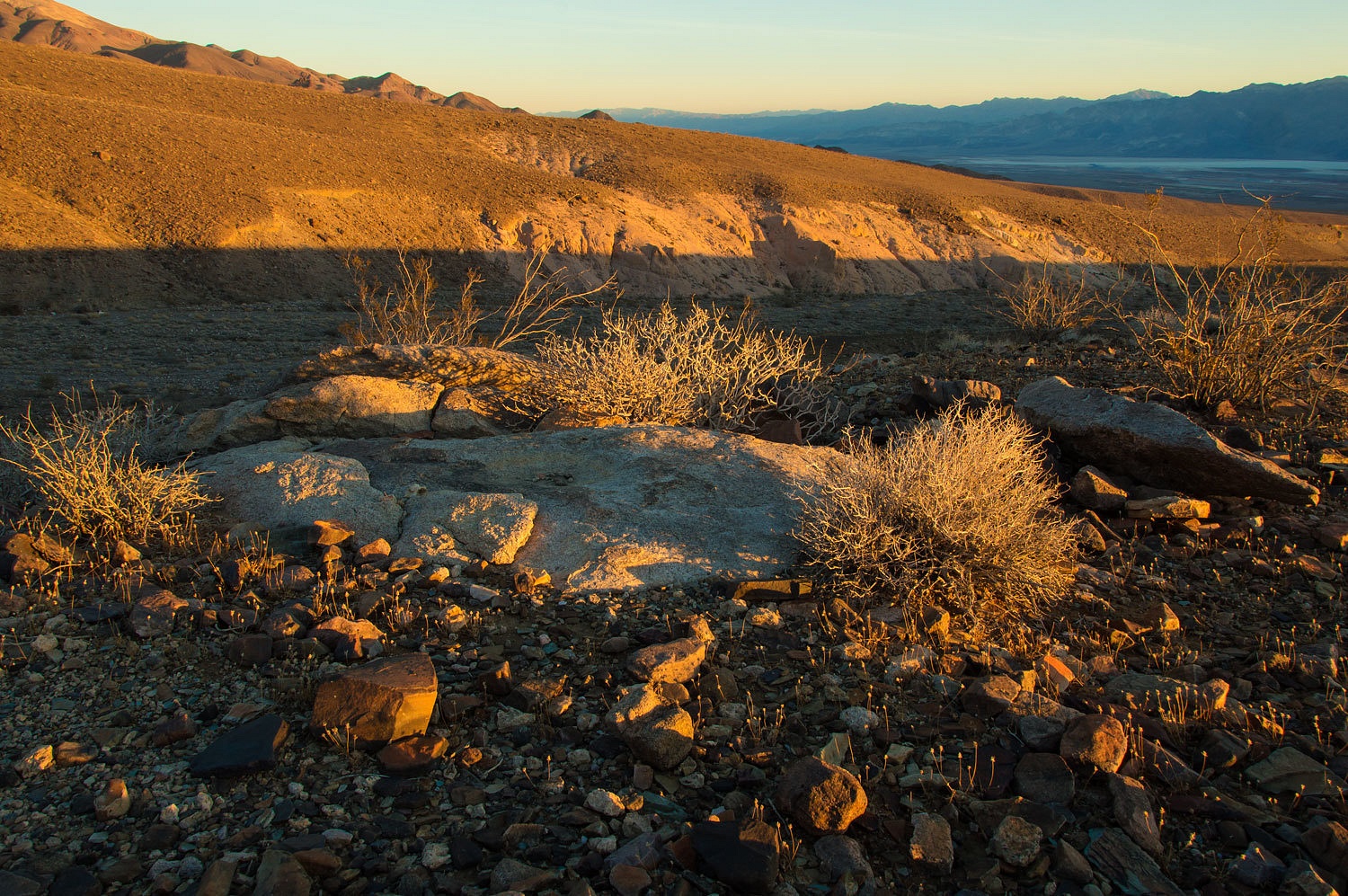
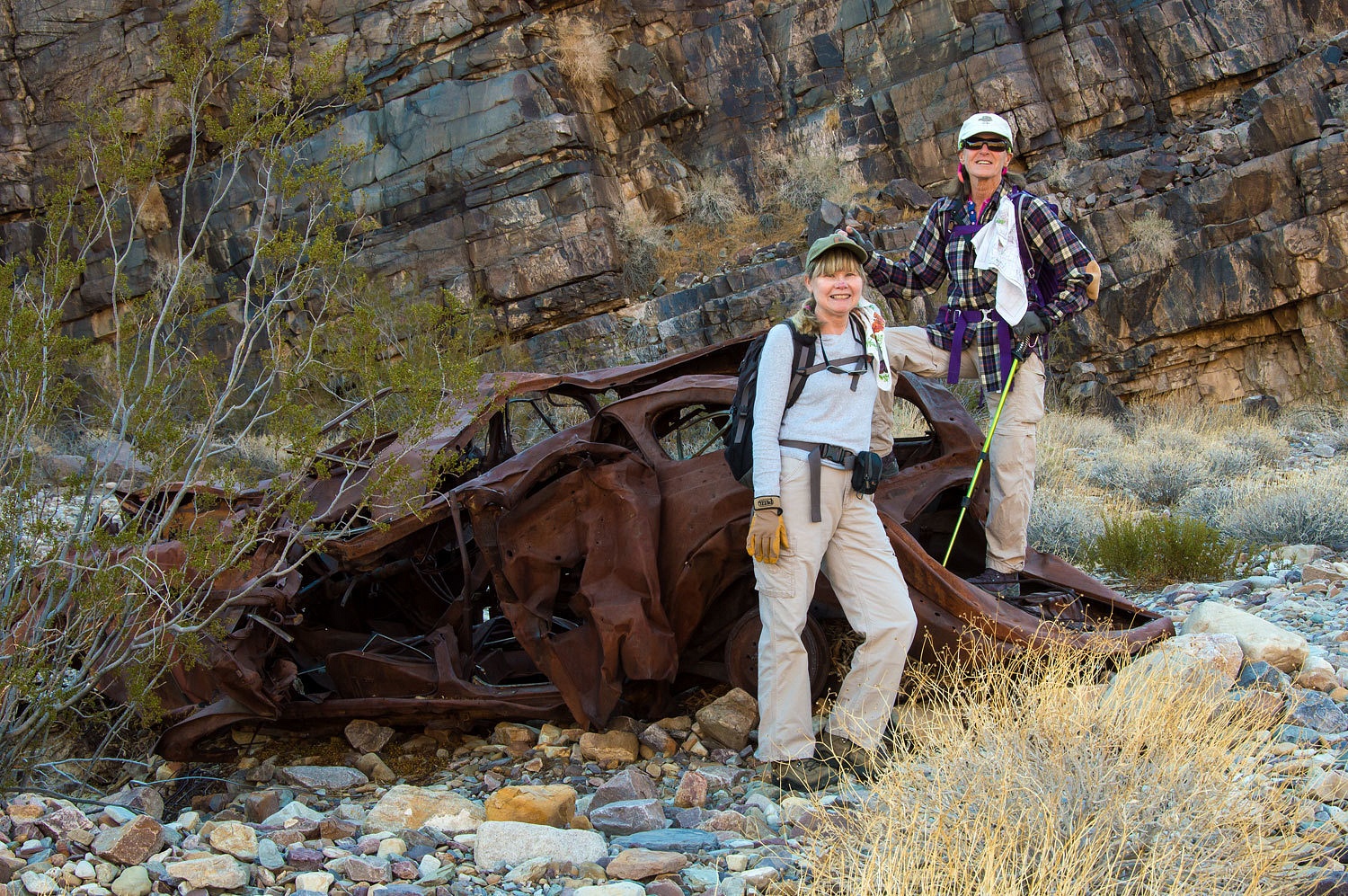

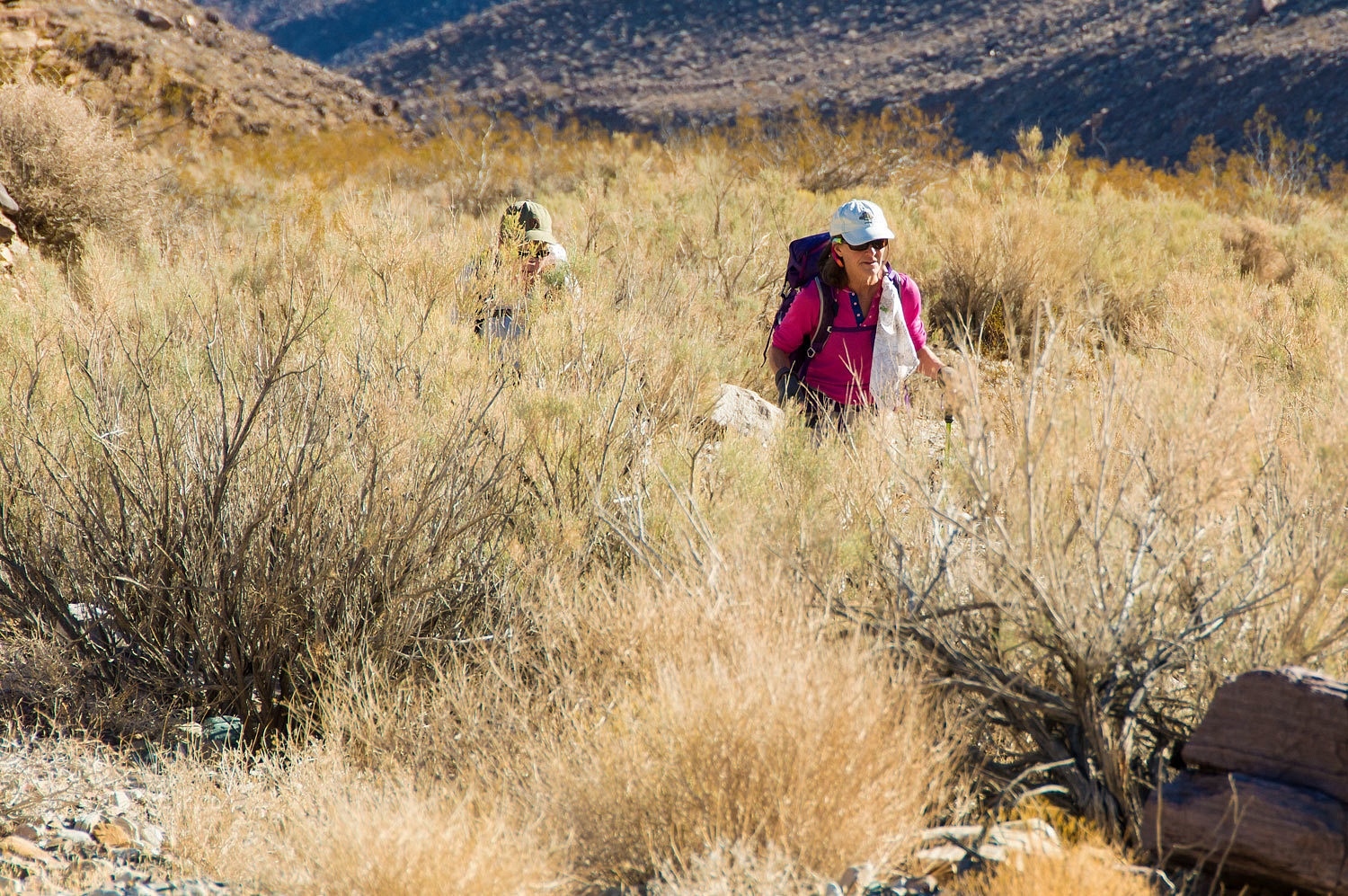
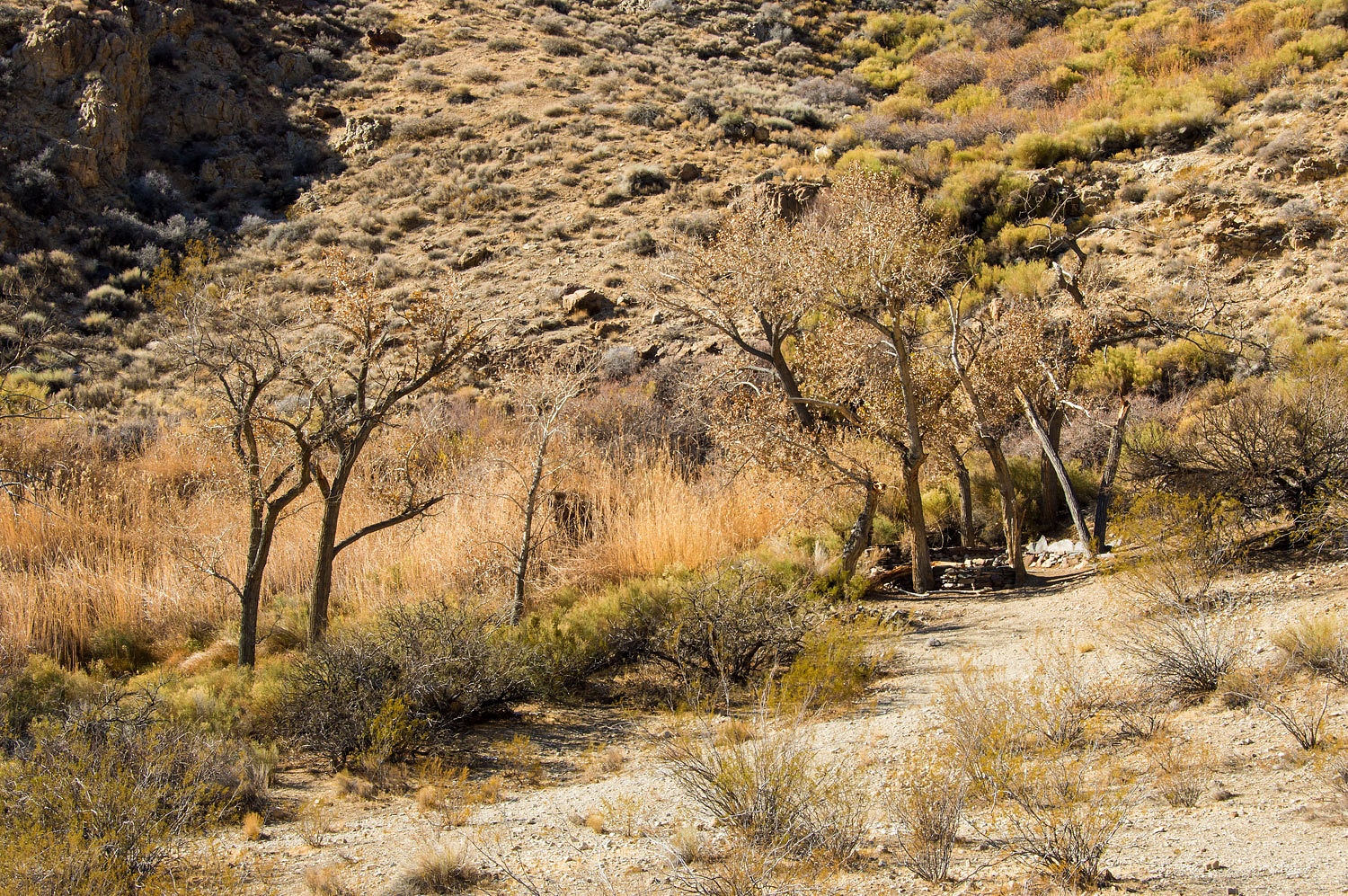
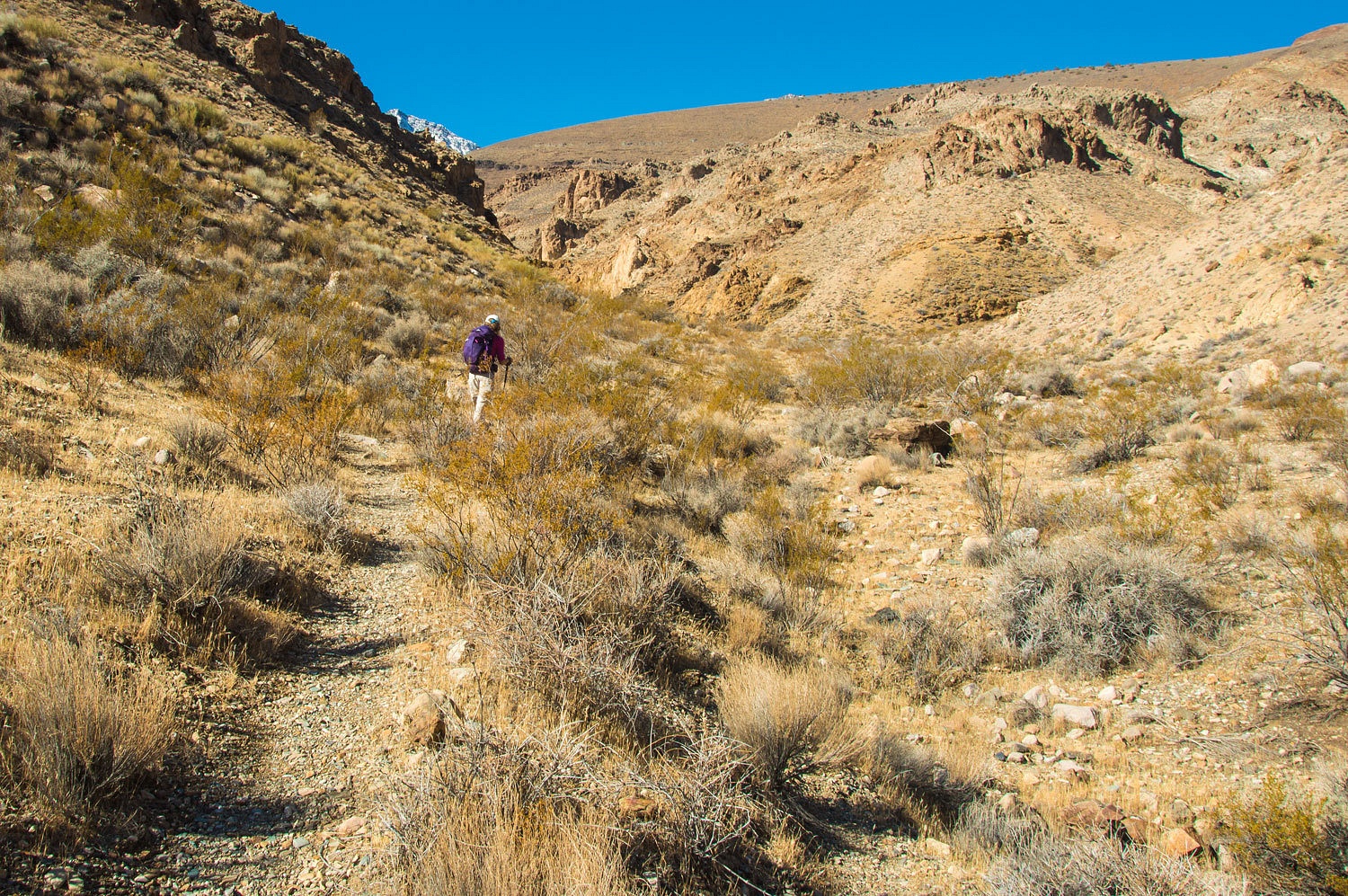
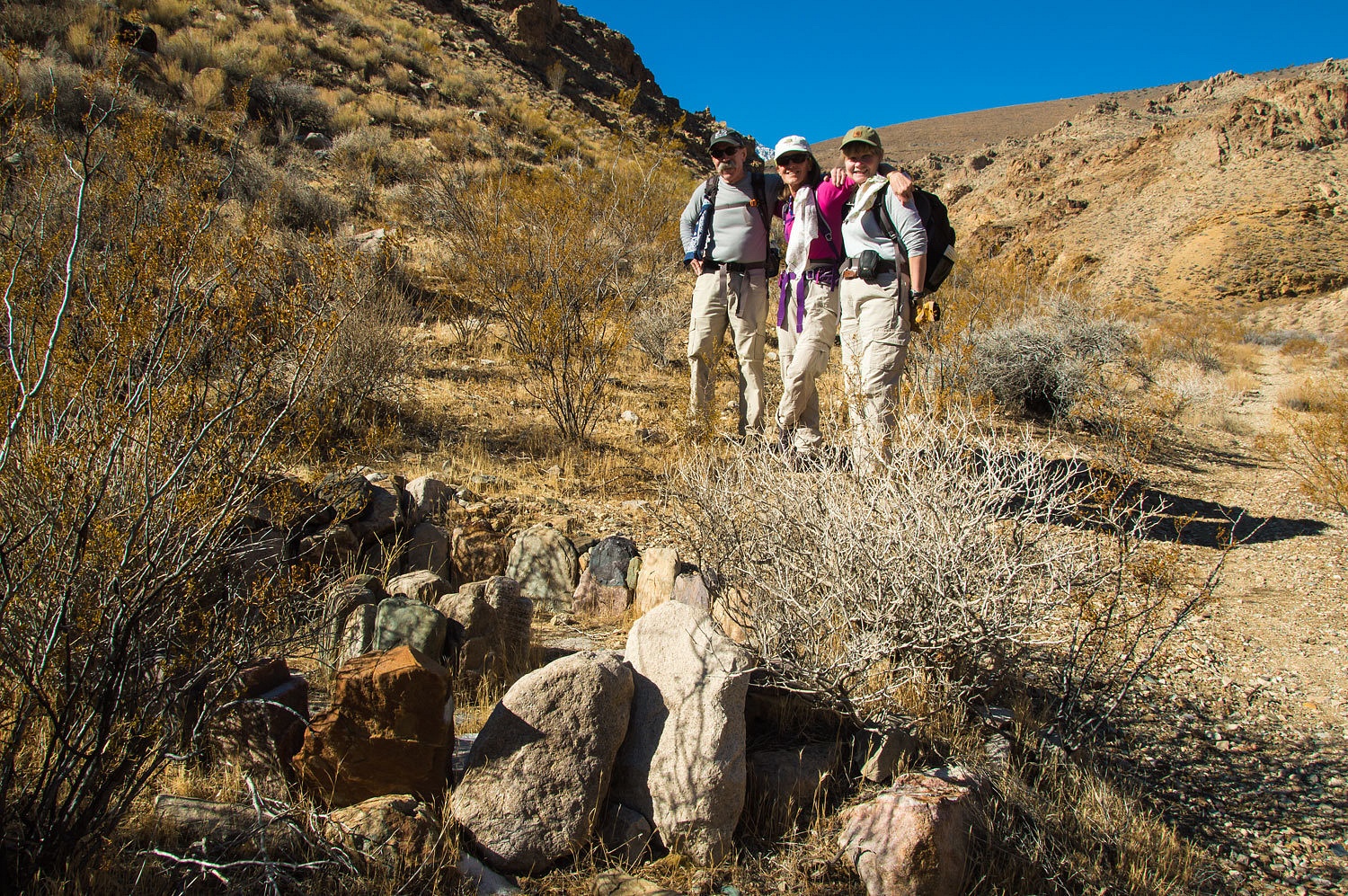
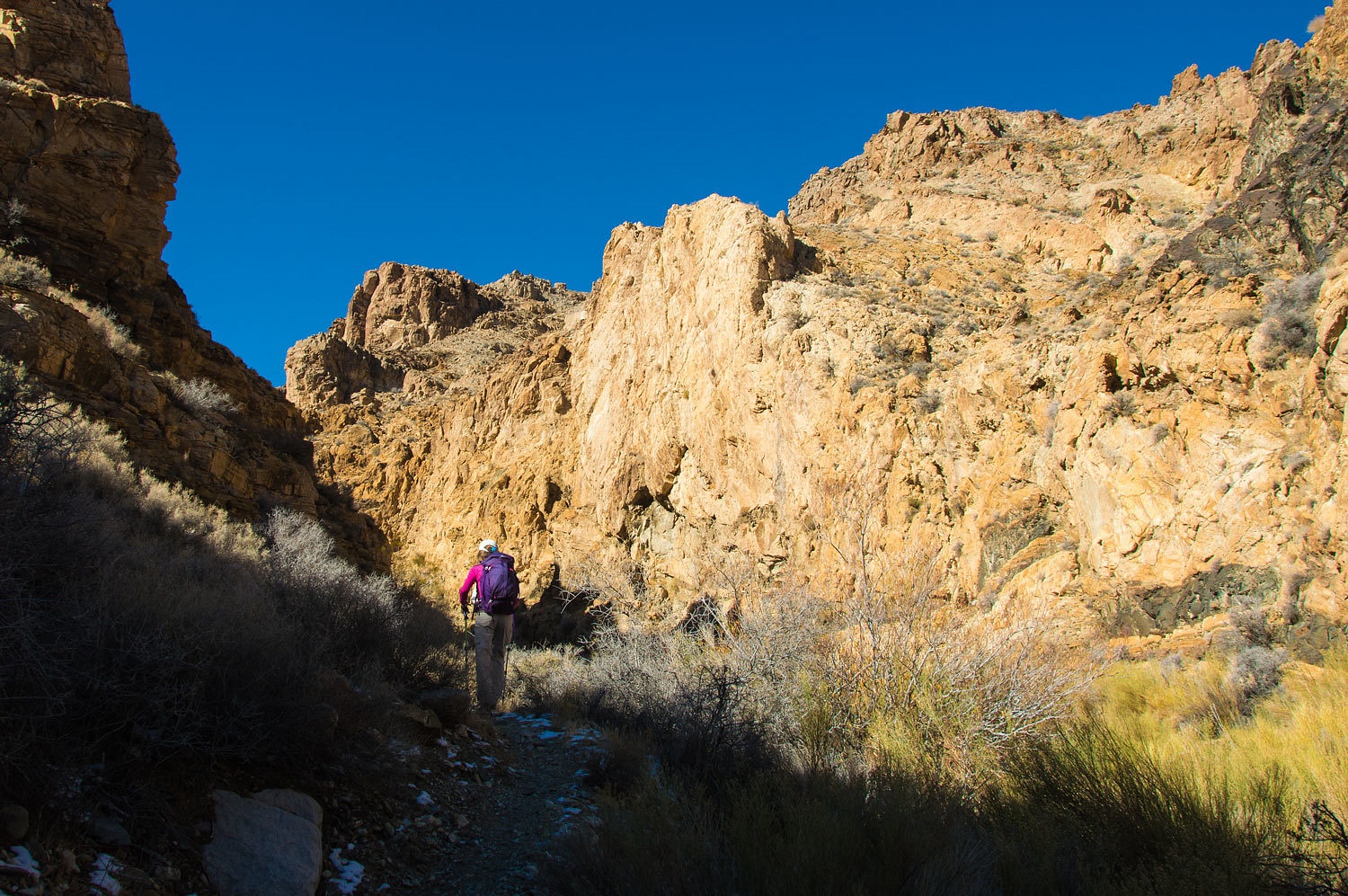
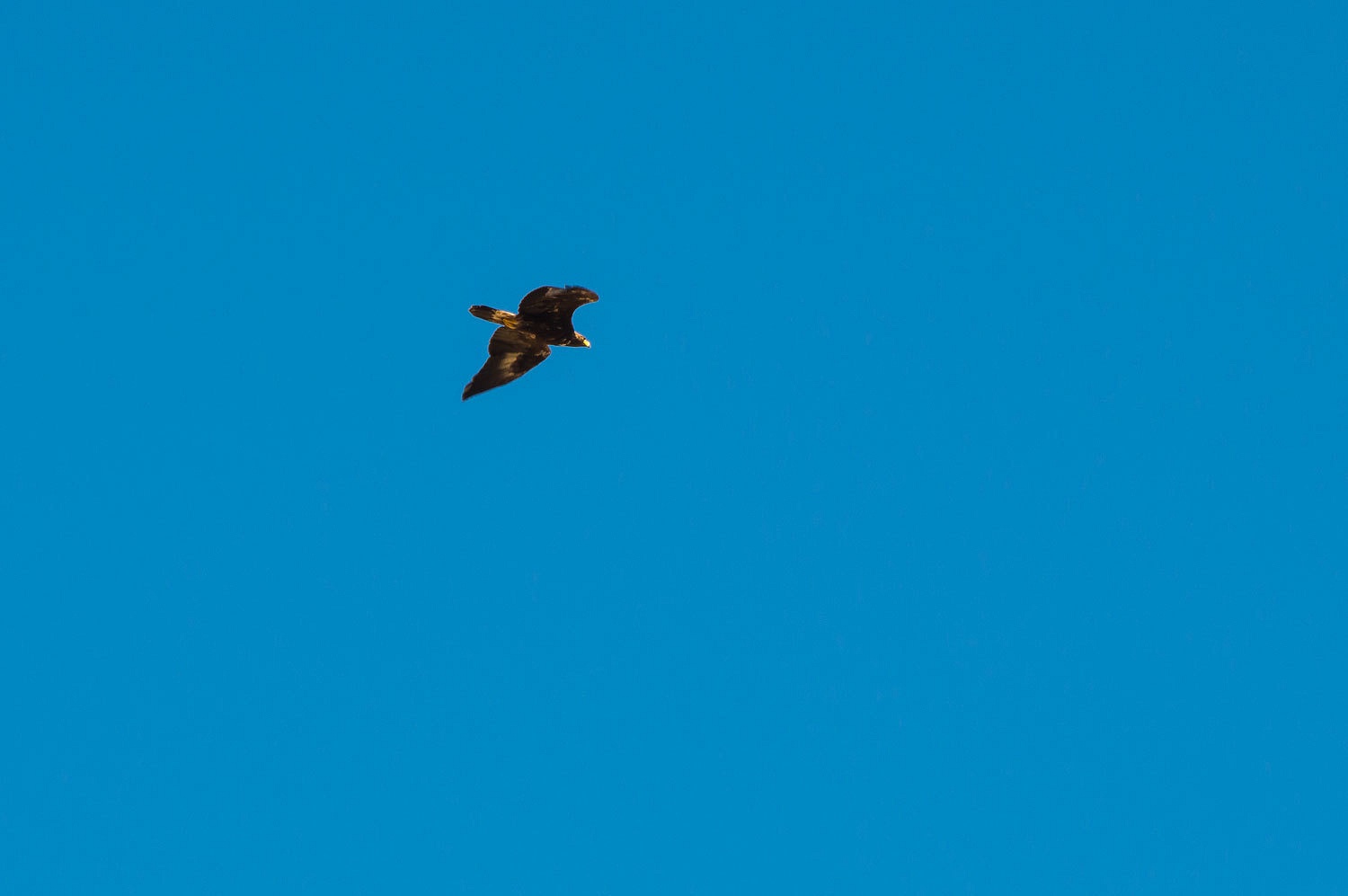
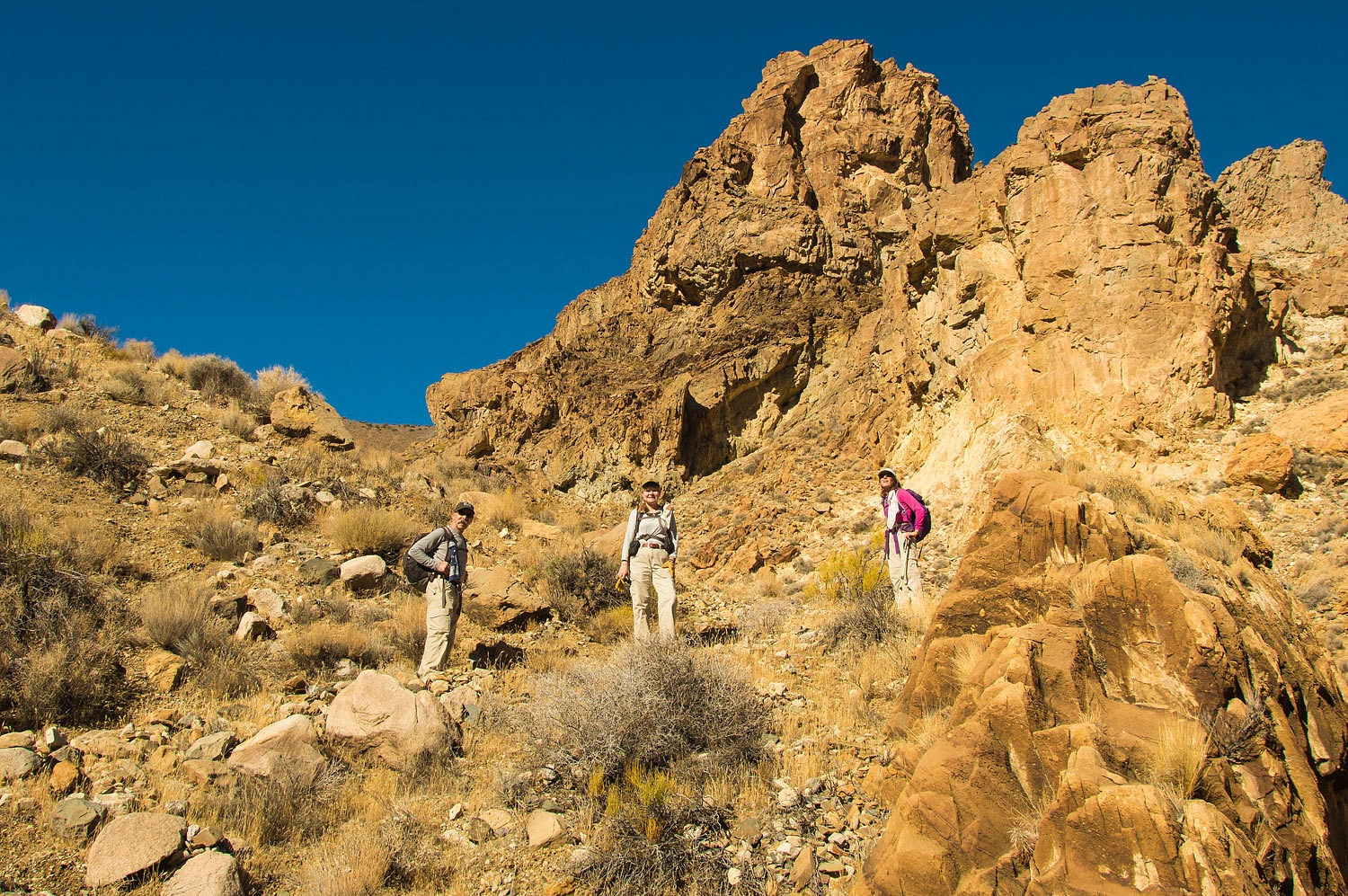
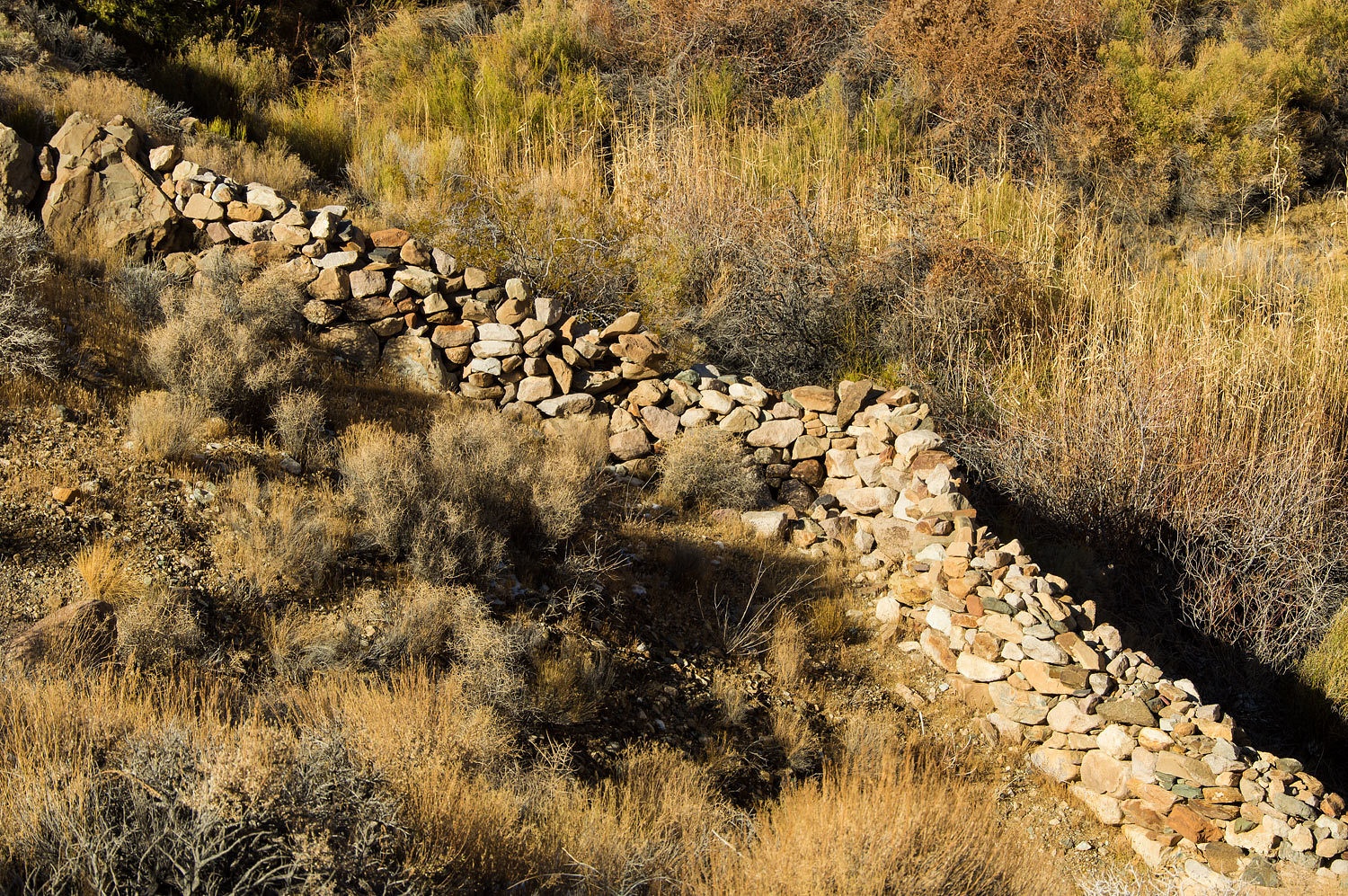
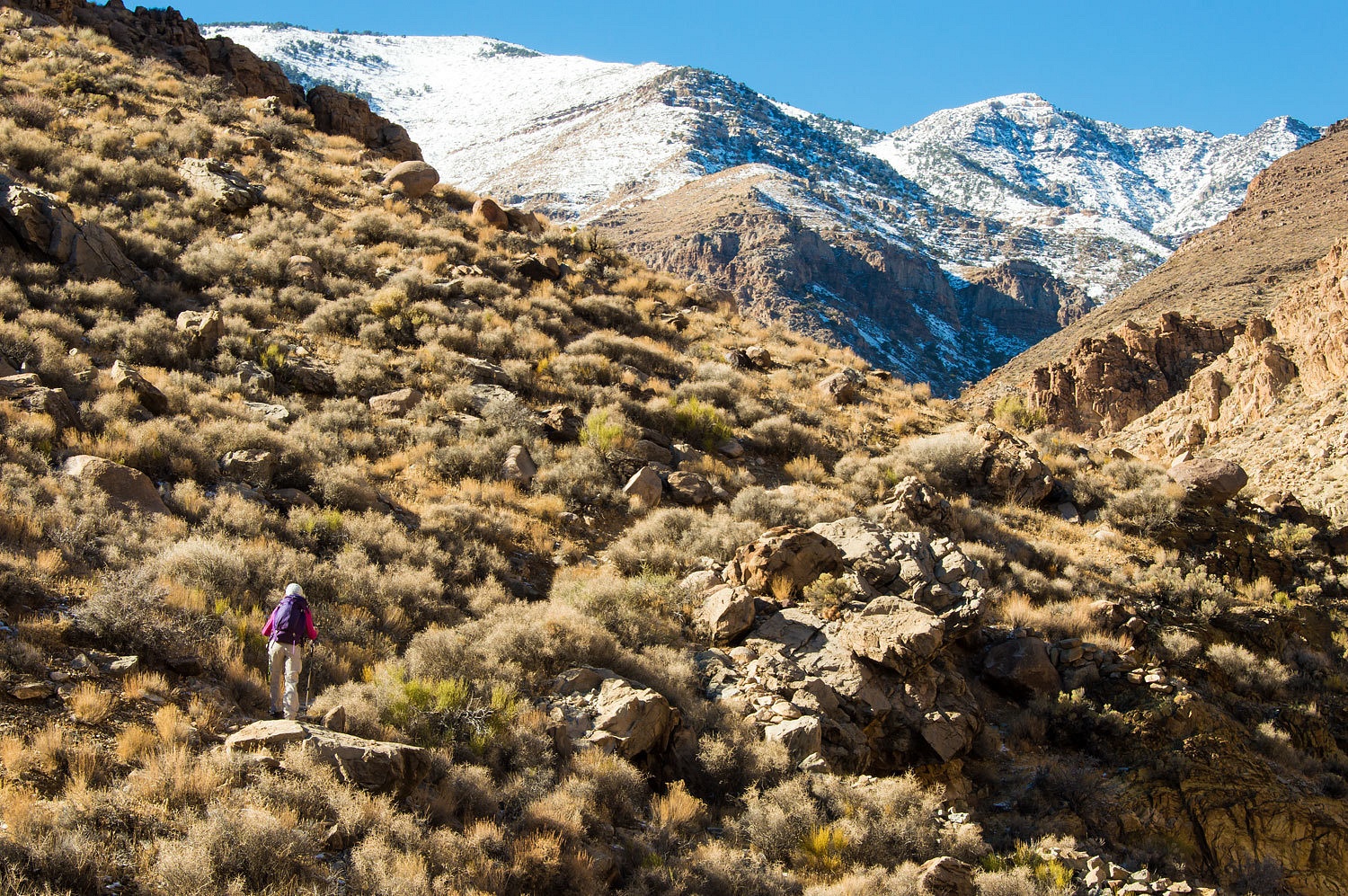
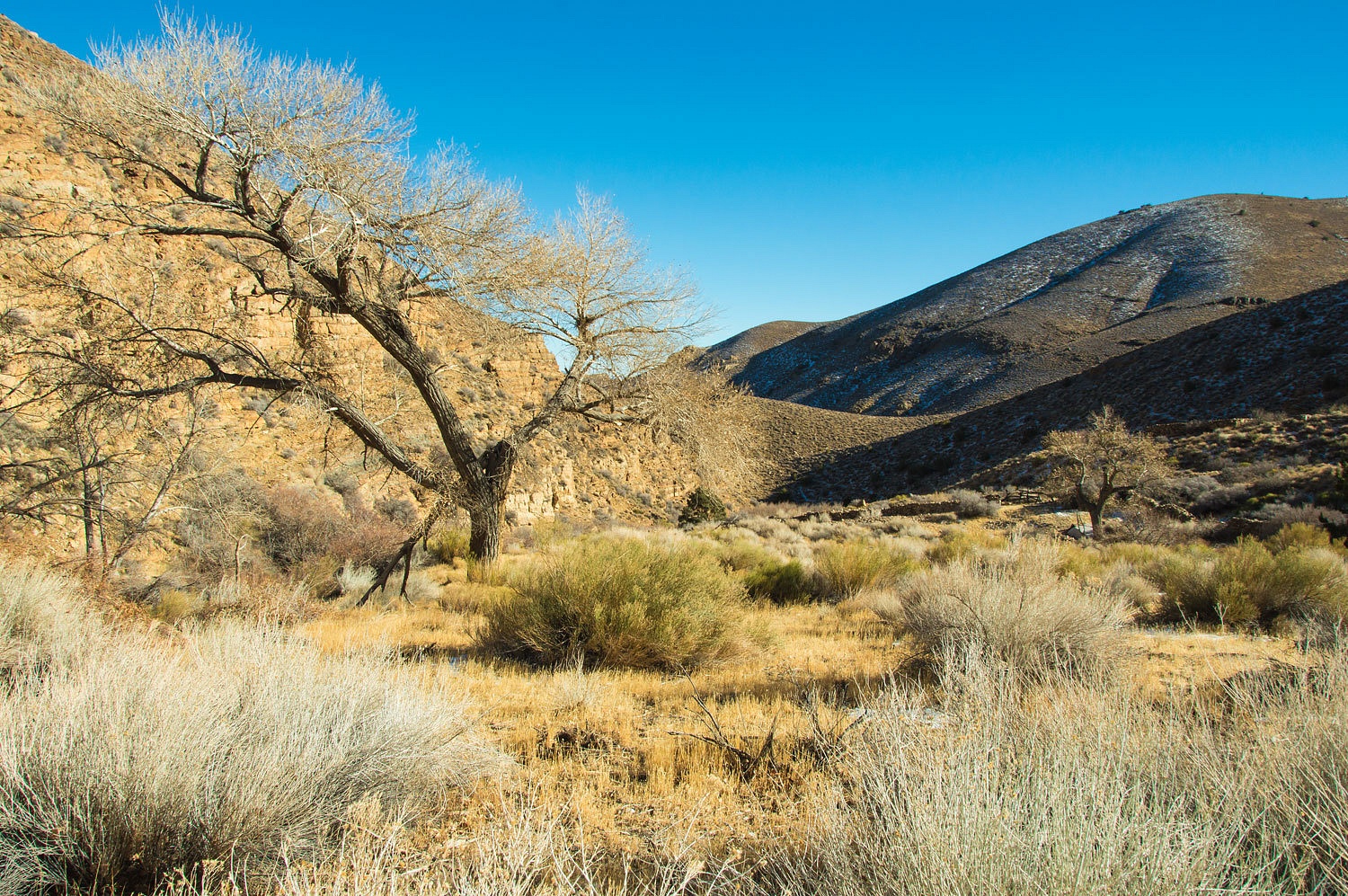
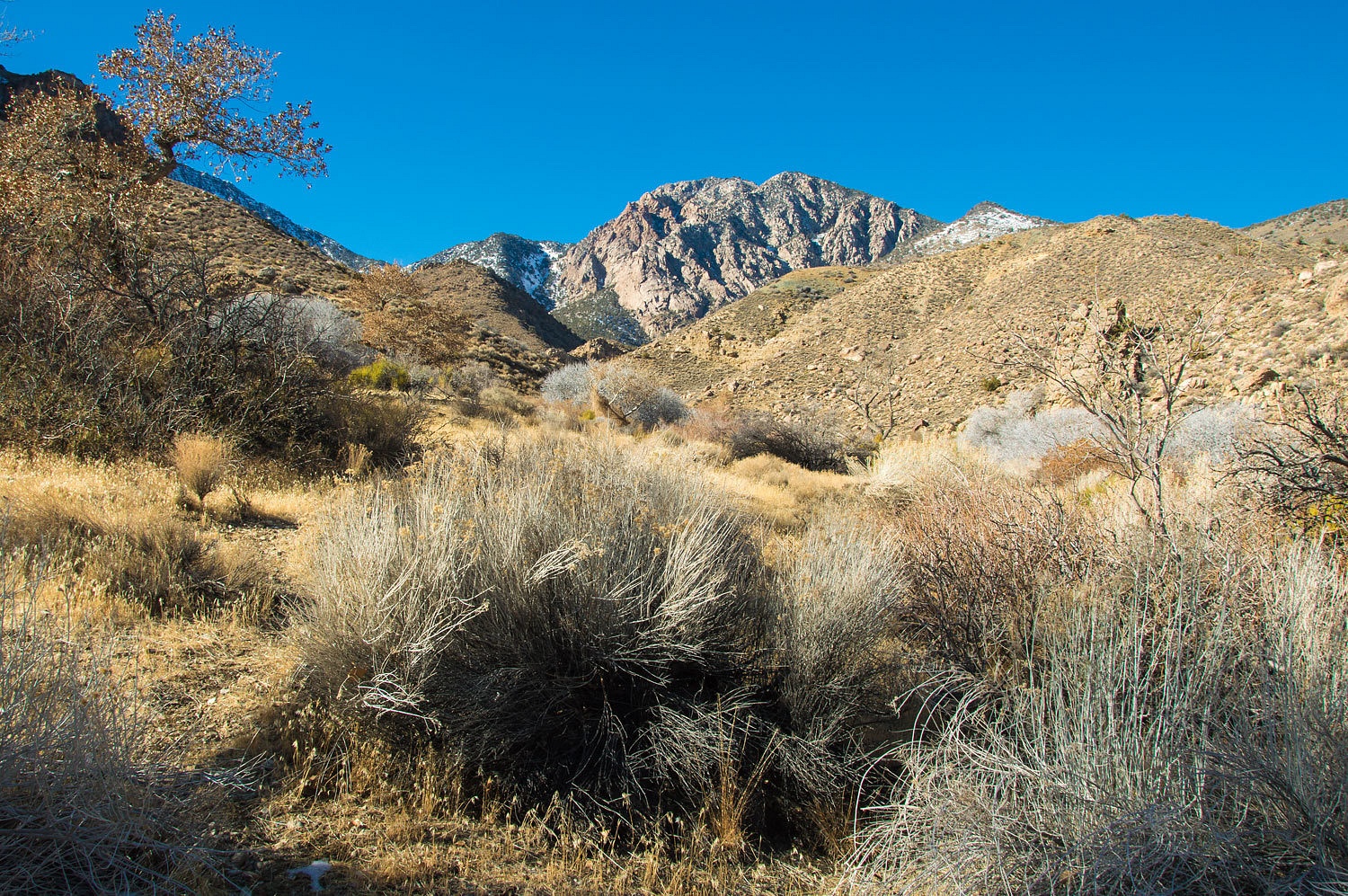
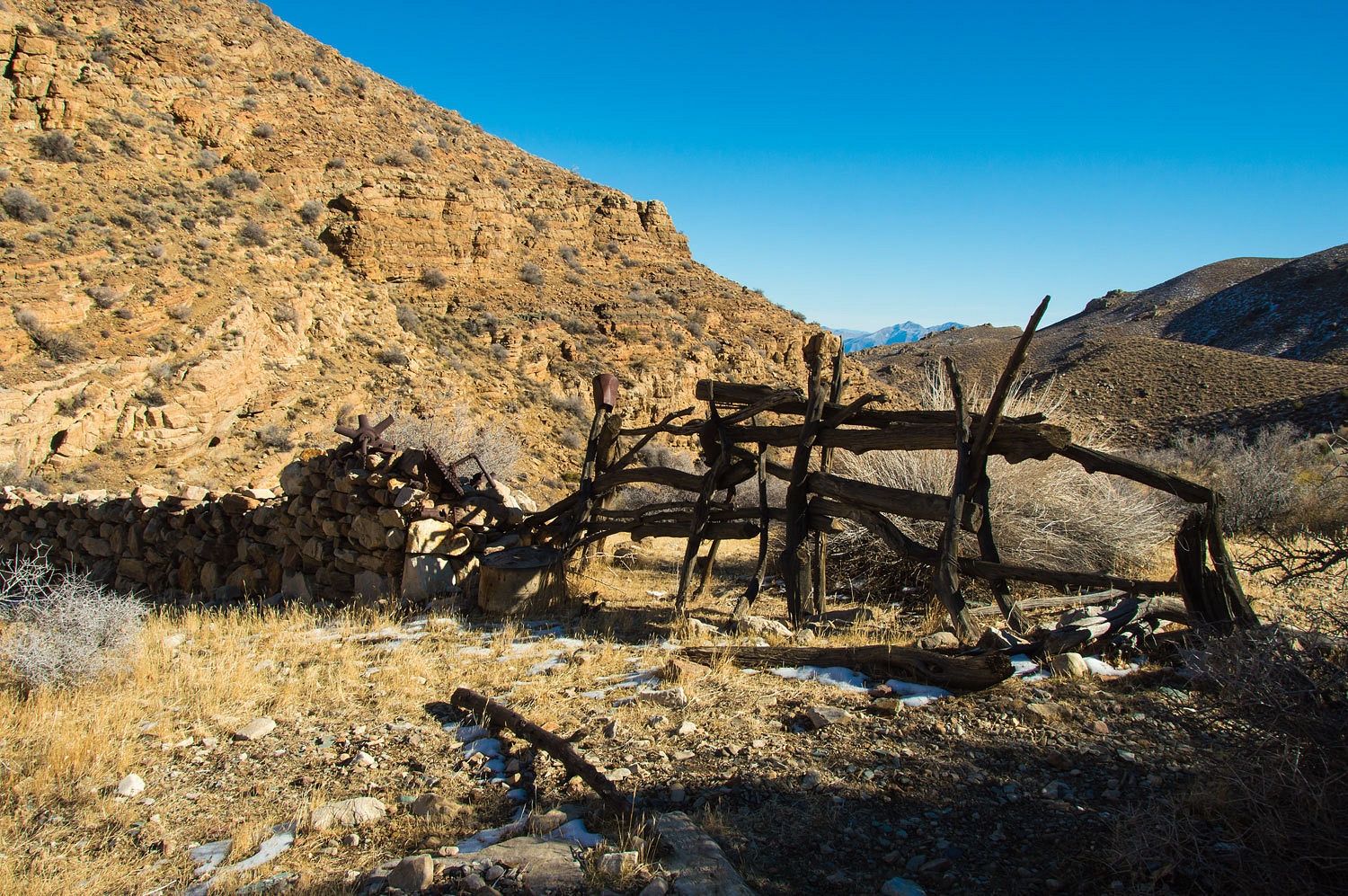
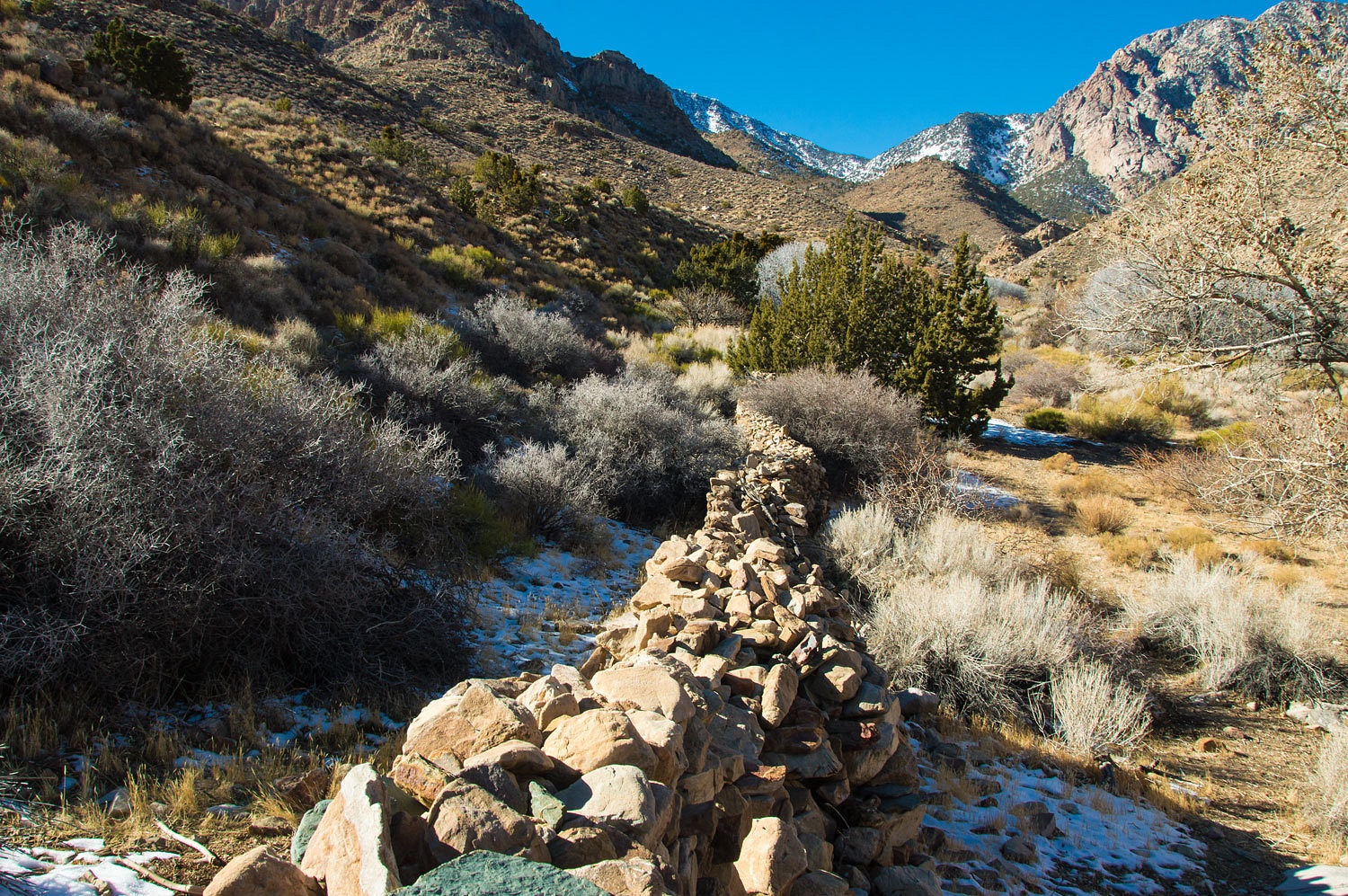
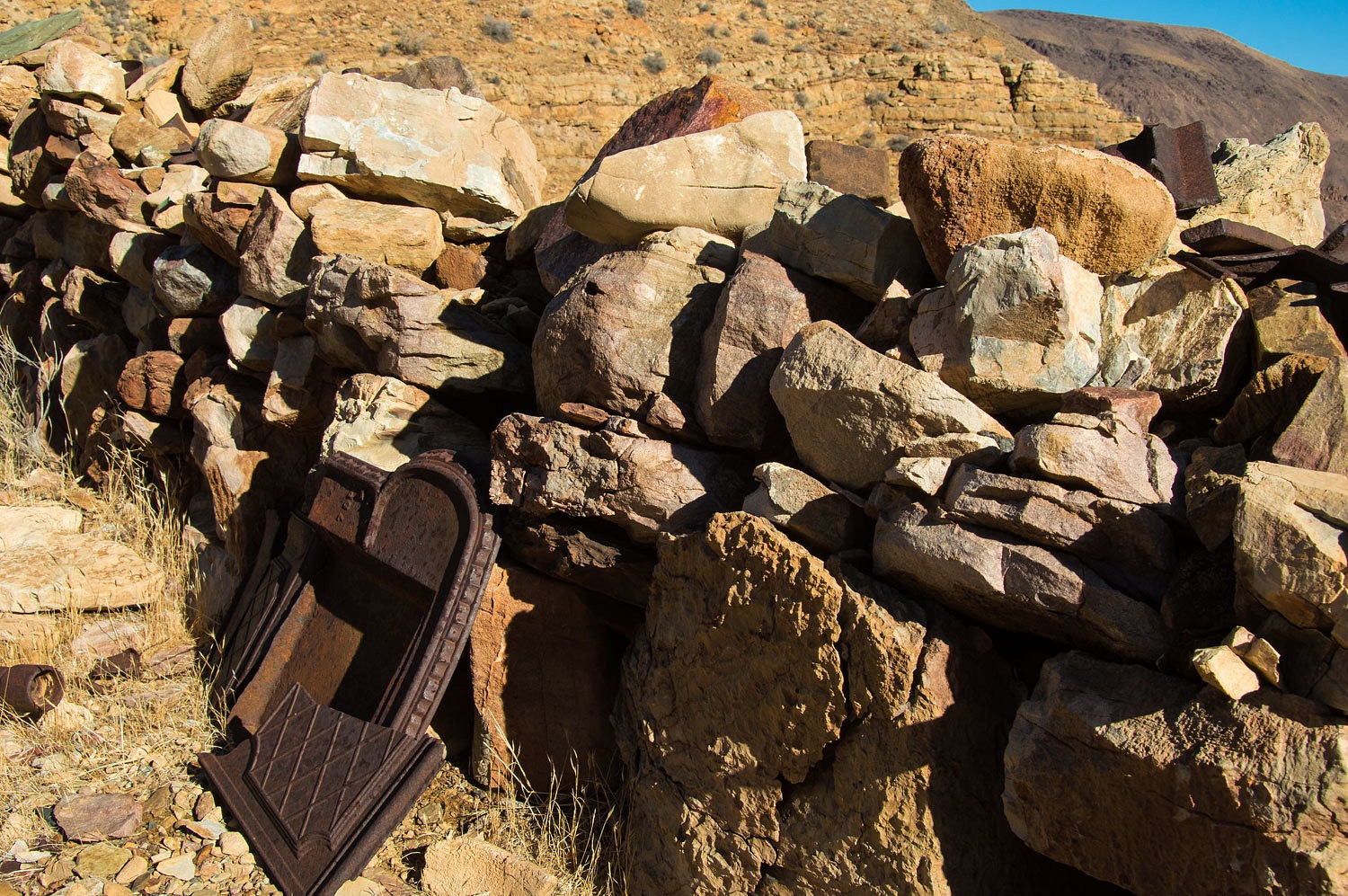
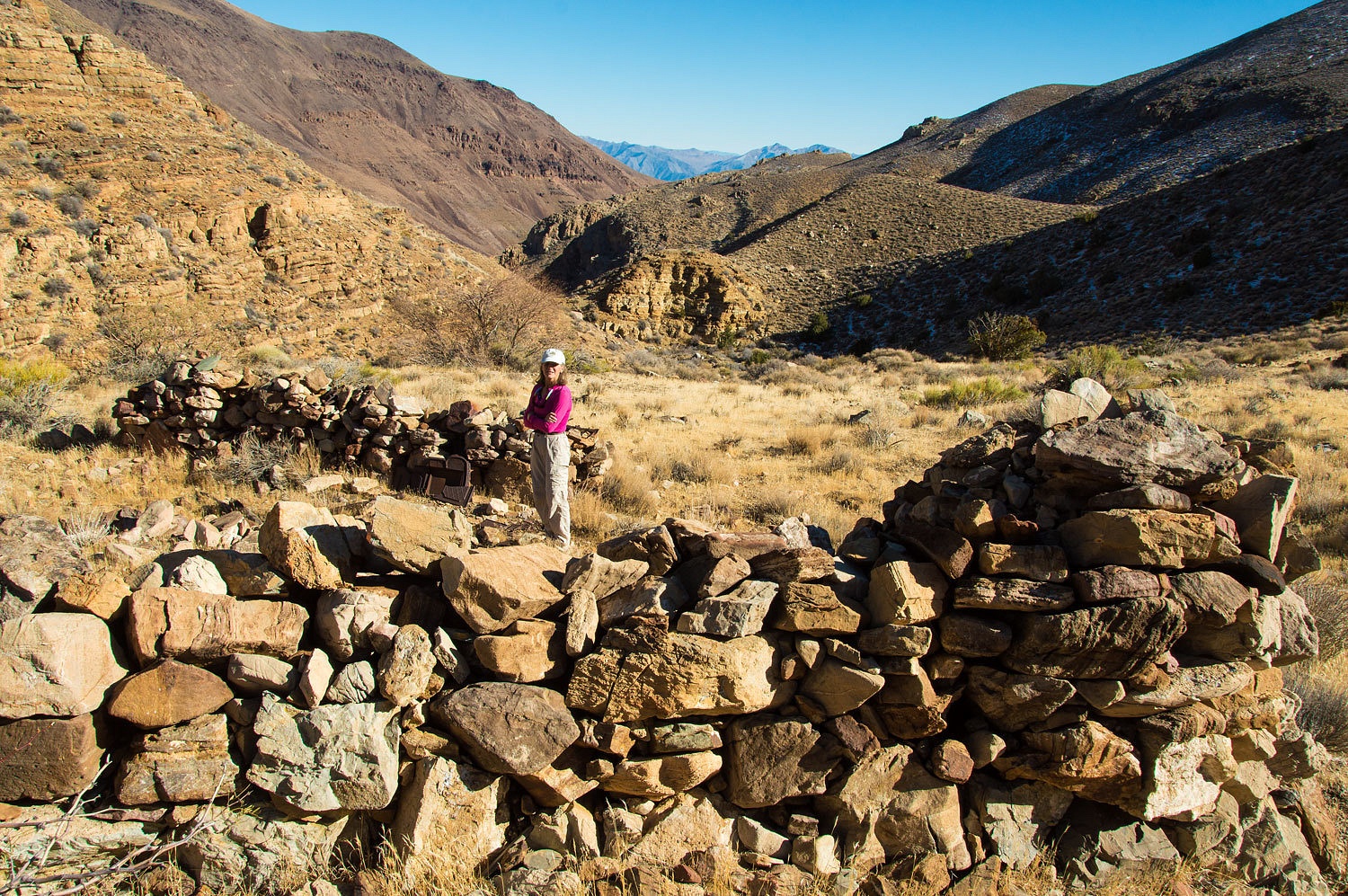
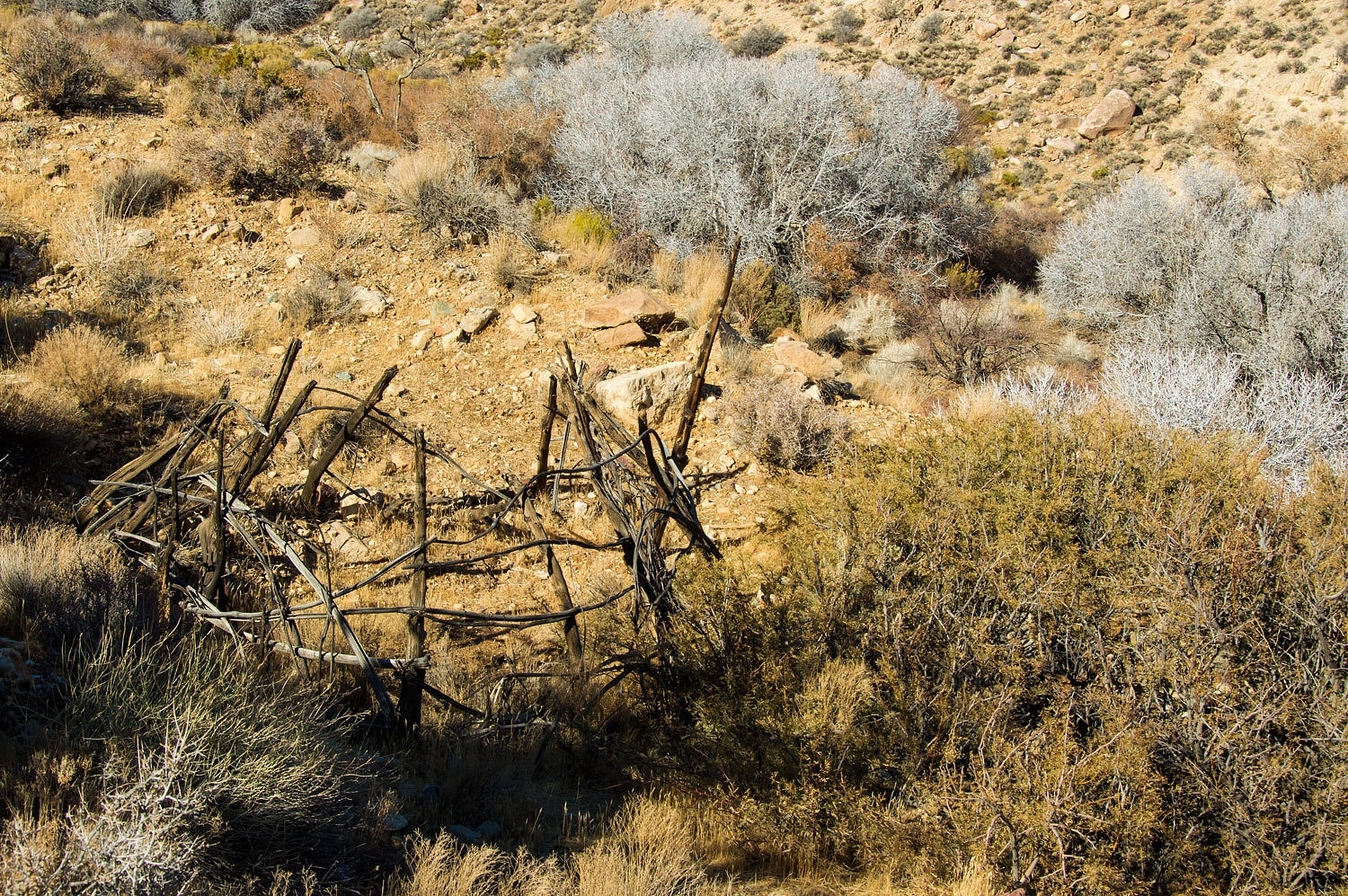
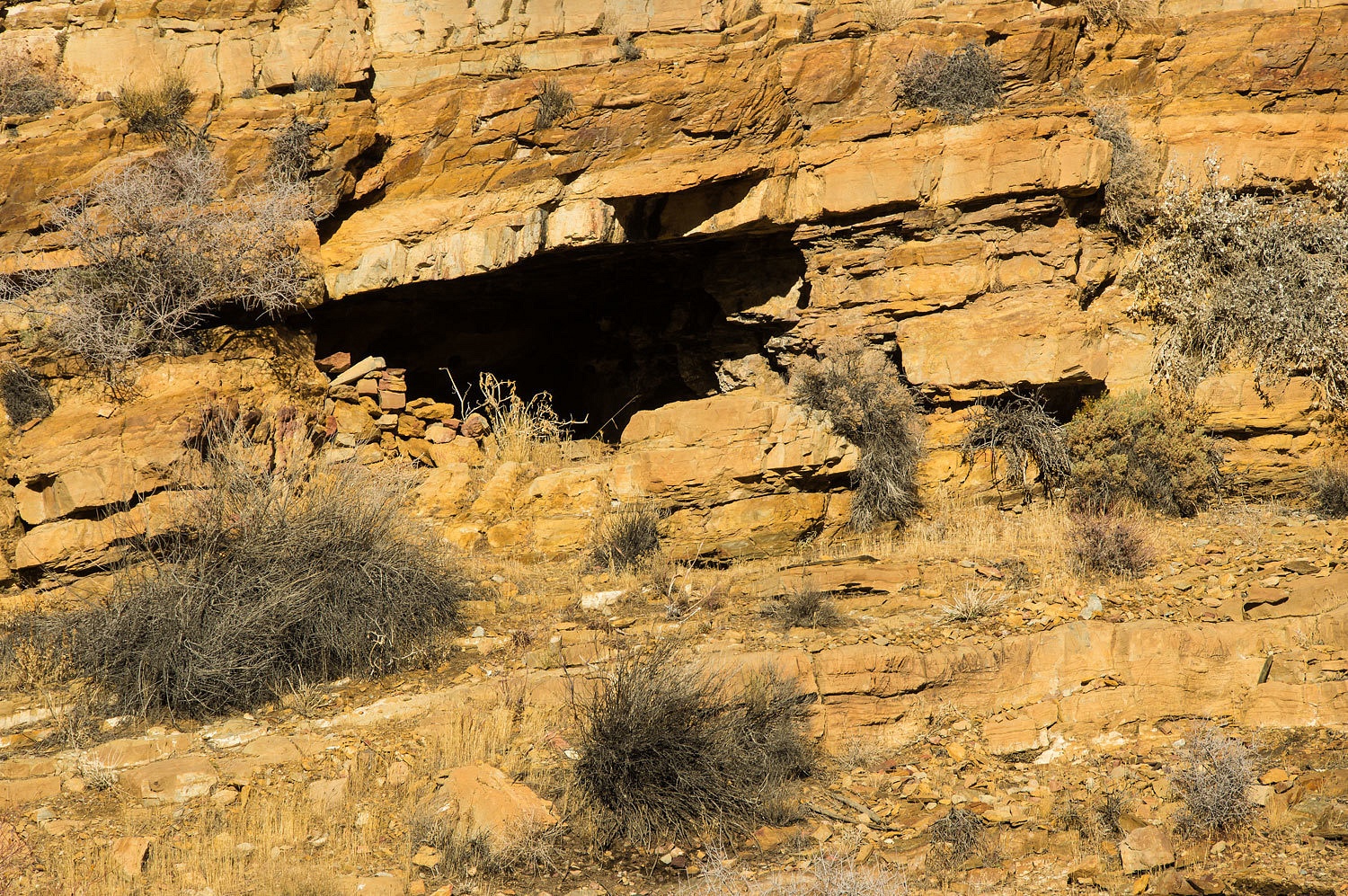



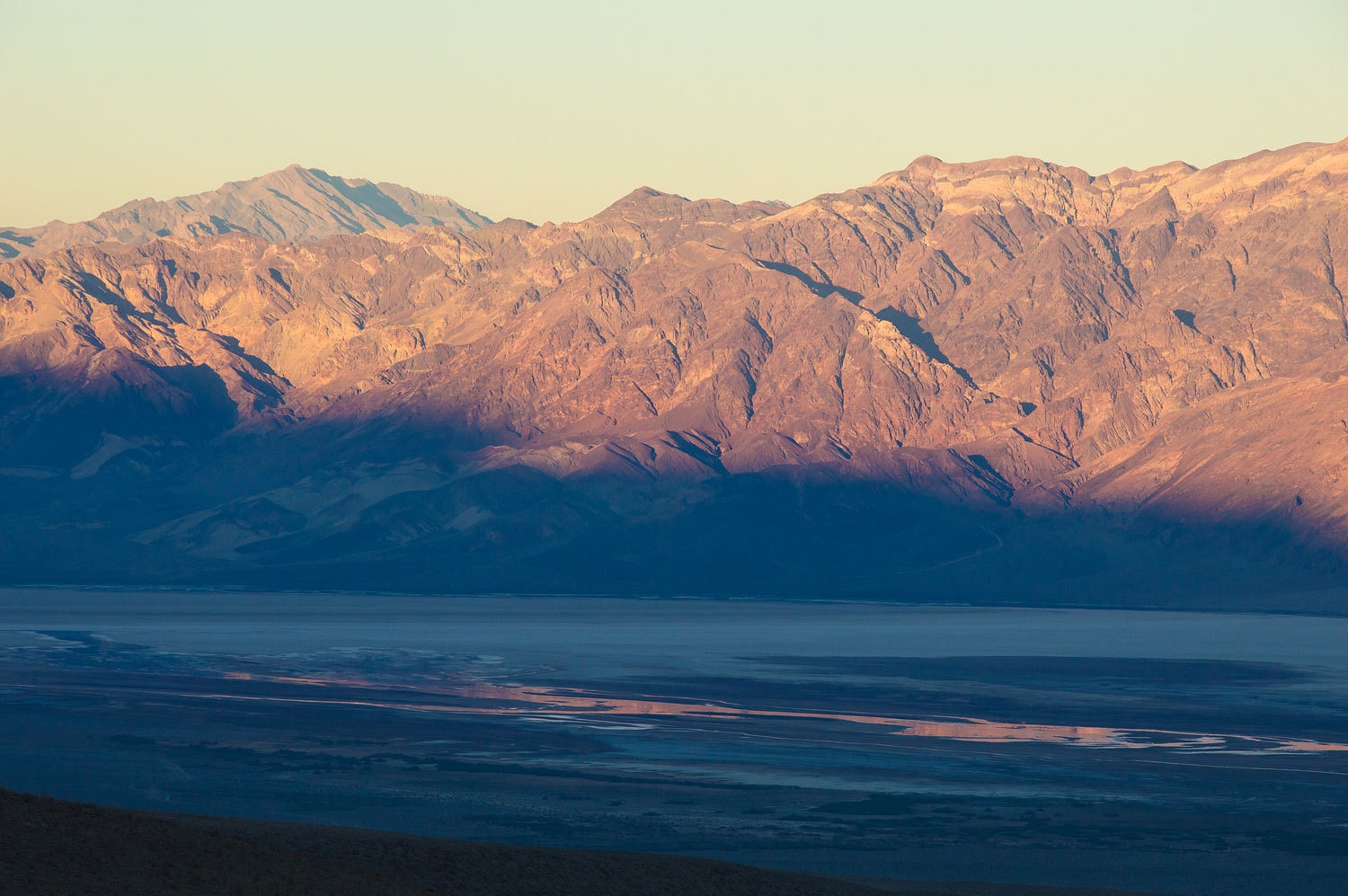
I would bet that there are very, very few people who have seen the remains of an actual wikiup in the original setting -- they are so fragile and easily vandalized. The dry climate of Death Valley is like an outdoor museum. Very cool!
ReplyDeleteThanks Dan for your nice comment. Death Valley works its way into your soul. To me there is magic.
Delete